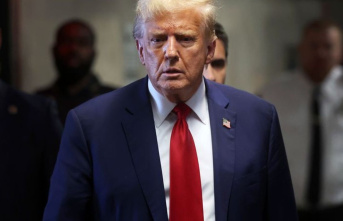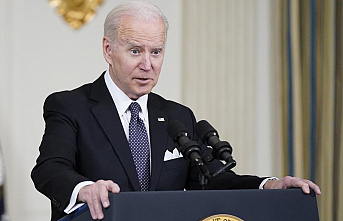In a dispute about a federal law passed in 1994 to provide job protections for veterans, the justices heard arguments.
The justices spent 90 minutes discussing the Vietnam War, Russia’s invasion of Ukraine and Alexander Hamilton. They also tried to figure out whether states are protected from lawsuits brought by veterans who claim that their jobs were not safeguarded, in violation federal law.
The case centers around Congress's power to wage war, and the acknowledgments by the states that they lack similar authority, both as set out in the Constitution.
"We don’t know what’s going to happen in the next 50-years." Justice Brett Kavanaugh stated that we don't know the future in terms of personnel and national security in the next 50-days.
Le Roy Torres was a U.S. Army Reserve veteran who served nearly 19 years and spent a year in Iraq. The court is currently considering an appeal.
Torres claims that he was exposed to open fire pits at his base in Iraq and suffered lung damage.
Torres and the state dispute what happened to him when he returned from Texas. He was unable to return to his position as a trooper due to damage to his lungs. Later, he filed his lawsuit. He eventually resigned. The state appellate court dismissed the case and the justices intervened.
The Biden administration supports Torres' rights to sue the state. Justice Samuel Alito asked Christopher Michel, a Justice Department lawyer, if the federal government has sued states since 2004, and only twice since 2015.
Michel stated that the numbers are even greater when you consider how many soldiers have had their claims resolved without having to go to court.
15 other Republican-led States are calling for the court to support Texas and reject private lawsuits such as Torres'.
In 1974, Congress allowed veterans of the Vietnam War to sue their states for their job security. This was in recognition of discrimination arising from disobedience.
Justice Sonia Sotomayor stated that the Vietnam War was what made the statute mandatory.
Justice Amy Coney Barrett stated that opposition to future wars could lead to similar situations.
Barrett stated, "Let's suppose we get involved with Ukraine and states tell us not to,"
After briefly turning to the theater, Justice Stephen Breyer invoked Hamilton's song "You'll be Back" to show that George Washington's frustration at the refusal of the states to pay the Continental Army led him to establish a national defense.
George III said, "They'll return." Let's wait and see. They'll come crawling right back to me," Breyer stated, accurately capturing the sentiment but not the lyrics.
allowed the Navy last week to consider sailors' vaccination status when deciding on deployments. This narrowed a lower court order. Clarence Thomas and Neil Gorsuch, three justices, voted against the order of the high court.
Texas' arguments Tuesday were most palatable to Thomas and Gorsuch. Thomas stated, "I might not be as enamored by Hamilton as some are."
Thomas participated again remotely on Tuesday after a nearly seven-week-long stay in hospital for an infection. Thomas did not attend the courtroom Tuesday after a nearly week-long hospital stay for an infection. The court also didn't provide any explanation as to why Thomas wasn't there.












